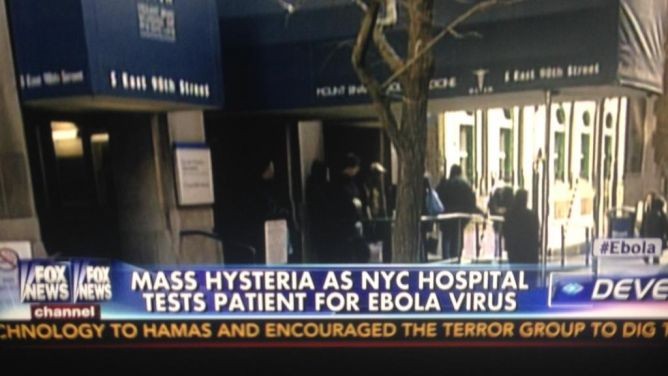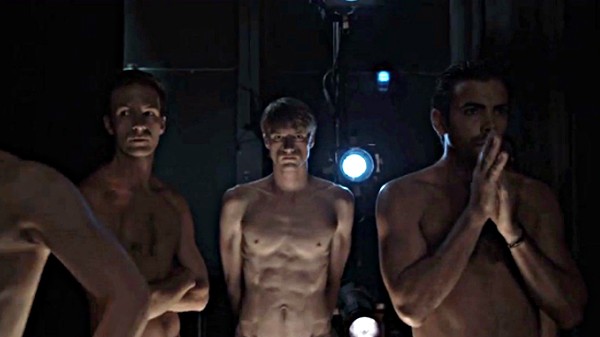I am a Gen Xer. I’m neither proud of that nor defensive about it. It just happens to have been when I was born. I remember a time when AIDS was called GRID. Heck, I remember when Ayds was a chocolate diet pill. I remember when Tab used to have saccharin, Madonna had talent, Bob Geldof wasn’t a knight, and rock stars didn’t brag about sobriety. I was fully present for the Iran Hostage Crisis, the energy crisis, Gulf War One and Gulf War Two: Electric Boogaloo, and the L.A. riots.
And YET, many of my contemporaries seem to think we grew up next to Beaver Cleaver with mom in the kitchen, dad smoking away in his Packard, and a kooky neighbor who called kids scamps.
What happened here? True fact: Nine out of 10 Facebookers aged 40-55 will begin at least one post with, “Back in my day … ” Back in my day what? You had to walk to the video store instead of watching Netflix? Your choices of yogurt were either strawberry or blueberry? Your cellphone was the size of a suitcase?
According to every other post on Facebook, my generation never played in our school clothes, never interrupted adults, roamed the neighborhood like packs of wolves (okay, that one has merit), minded our P’s and Q’s, always did our homework neatly and promptly, and emptied chamber pots without being asked.
 Raluca Tudor | Dreamstime.com
Raluca Tudor | Dreamstime.com
What fresh hell is that? Is the secondhand smoke finally kicking in? Is aspartame really killing our memory? We were the first latchkey generation. Our moms weren’t home baking cakes. They were out working to afford Guess jeans and Esprit sweatshirts for us. We grew up in cities, not Mayberry. We sprayed our hair stiff with Aqua Net, wore shoulder pads that made us look like the Razorback defensive line, and snuck our parents’ Winstons and Riunite Lambrusco. We played soccer, not kick the can. Get a grip, people. We had video games. We were the first gamers! We also had VCRs (except for that one family who had Betamax) and home computers.
What has happened here? Are we that frightened of our present we need to create a past which never existed for us except in reruns we watched on cable while we stuffed our faces with pizza rolls? JUST LIKE OUR KIDS DO NOW? I get that each generation wants to play Shut Up, You’ve Got It So Good You Just Don’t Know.
You know who got to play that game? My granny who was born in the 19th century. Not even my granny. Her youngest sister, who was the one who had to carry the lantern to light the way to the outhouse for all her older siblings. My grandfather who grew up in Hot Coffee, Mississippi, during the Depression and ate so much poke he had to dip rags in coal oil and tie them around his ankles to keep the cutworms from eating him. HE could play that game. What’s the worst thing we say to our kids? Back in my day, you had to get up to change the channel? HORRORS. As a friend said, nostalgia is a big fat liar.
It’s scary out there. I think as we get older and things get weirder, we want something familiar to hang on to. Because the thing is, now we have all the weirdness shoved in our faces through E!, Twitter, and CNN. The National Enquirer is downright quaint. The Dowager Countess asked Robert if he was in his pajamas when he showed up for dinner in one of those newfangled tuxedos. And Robert couldn’t fathom getting Rose — that crazy flapper — a wireless.
It’s this idea that the good old days were really good. I don’t want to go back to no air conditioning, no birth control pill, and separate but equal. It isn’t that I want to ignore history — quite the opposite. I don’t want to look at it through gauze and a haze of Giorgio. Besides, it seems very middle-aged to go all cranky neighbor on kids these days and their hippity-hop music and their bra straps showing. Things, by the way, my generation created. I suppose that since we didn’t have the early lives we wanted, we’ve recreated them through annoying memes. We went Walter Mitty on our past.
Now, we’re not as bad as Boomers. You guys are the WORST. Apparently, you weren’t out inventing AIDS and the Internet. No, you were slamming screen doors, baking pies, collecting snails, and generally not doing anything that contributed to global warming. You were all peace and love and pot rather than Reaganomics and Enron. Get a grip. There’s an app for that. I said, THERE’S AN APP FOR THAT. NO, NOT LIKE AN APPETIZER, MOM! I kid.
But really, you guys are the worst.
Susan Wilson also writes for likethedew.com and yeahandanotherthing.com. While not Memphis natives, she and her husband Chuck Elliott have lived here long enough to know Midtown does not start at Highland.

